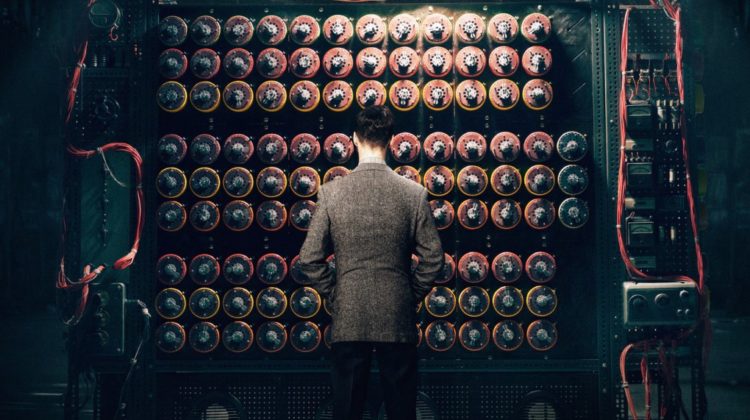
A personal review of the 2014 film about the WW2 mathematician — Alan Turing.
First up, I just watched The Imitation Game: 7 years too late for this to be a timely review, however, it is currently available to watch on Netflix(perfect!). Let’s just say I’m very glad I did. It’s been nominated for myriad awards and won the People’s Choice Award at the 39th Toronto International Film festival. You can watch the trailer here for a more visual introduction.
This film is based upon the life and times of English mathematician and cryptanalyst Alan Turing, he is also known in certain circles as the founder of the Turing test. The Test is devised to determine if a computer(what has now progressed to being known as Artificial Intelligence) can think as a human does. In essence: Can a synthetic intelligence convince a human that it is, in fact, human — can science imitate humanity so well as to become indistinguishable from humanity?
In this film, We have 3 main characters who really resonated for me: Turing himself(Benedict Cumberbatch) characterised by being exceedingly intelligent but socially inept to the point we are unsure where the thinking machine ends and the human begins. Joan Clark(Keira Knightley) who is a young lady Cambridge graduate who is as math smart as Turing, but also street smart — a potent character who sparkles upon the screen. Finally, we have “the Enigma machine”, which is the incredibly complex German code technology — touted at the time to be unbreakable. Honestly, technology is no passive circumstance in this film — but a formidable adversary who also commands the screen.
From this point on, there may be spoilers, read at your own risk. I would say, however, even if you know a few themes to look out for, you would still find a lot to love here.
I felt with this film, I came for the science and the rollicking spy story but what I actually got was human drama and an emotional vehicle to ask myself: Why does society try to crush anything different? If we are all different why are we so afraid of a machine who can think as we can? Are we all just walking around trying to convince others that we are in fact Human? Are we all playing the imitation game?
A big plot point is the treatment of gay people in the war years and beyond. Keeping in mind that this film is based on a real historical figure, it is very confronting to know that even as late as the 50s gay men were persecuted to a point past criminalisation. We also touch upon intersectional feminism, the treatment of neuro-atypical people, the best way to find genius and the wonder of knowing love in all its forms.
I will not be plumbing into the spycraft of the plot: rest assured it twists, it turns, it makes you lean in, be suspicious and hold your breath!
In the end, I am left with wonder at how much modern society is built on the contributions of the characters in this film; and how much they had to plumb their souls to achieve it.
All up: 9 out of 10 would watch again! < it’s only 9 because I never give a 10!
